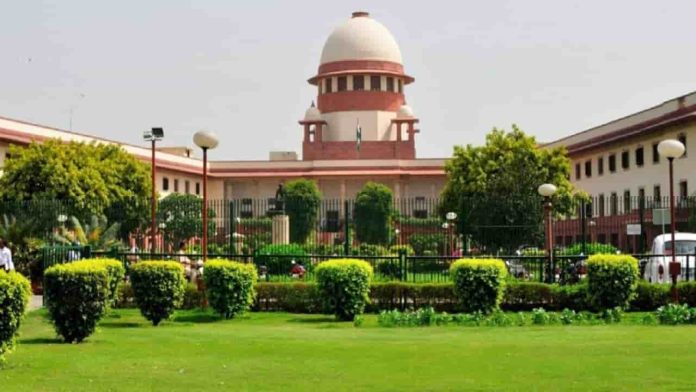The Supreme Court has rejected the bail plea of a member of Sikhs for Justice, a banned terror outfit, who was accused of putting up pro-Khalistan cloth banners at a flyover in Amritsar in October 2018.
The Court also did not consider the argument that the accused should be given bail as trial was taking some time.
A bench comprising of Justice MM Sundresh and Justice Aravind Kumar said that in cases involving grave offences, a mere delay in the trial cannot be used as a ground to grant bail.
The accused man was booked for offences under the Unlawful Activities Prevention Act (UAPA).
The Court added that the material available on record indicates involvement of the appellant in furtherance of terrorist activities backed by members of banned terrorist organization involving exchange of large quantum of money through different channels which needs to be deciphered and therefore in such a scenario if the appellant is released on bail there is every likelihood that he will influence the key witnesses of the case which might hamper the process of justice.
The Court said this while it was dealing with case many people including the petitioner were allegedly found hanging cloth banners on which “Khalistan Jindabad” and “Khalistan Referendum 2020” were written at the Pillars Kot Mit Singh Flyover in Amritsar.
An entire module of the banned terrorist organisation named “Sikh for Justice” was revealed by the Punjab Police in April 2020, where the case was handed over to the National Investigation Agency (NIA).
The NIA in its probe reported that the accused had received funds through illegal means sent by “Sikhs for Justice” and that those funds were then channeled through hawala towards furthering the Khalistani separatist ideology of demanding a separate State for Sikhs.
The accused has been charged in procuring weapons through the help of an ISI handler and also creating terror.
In April 2023, the Punjab and Haryana High Court order rejected a bail plea filed by the accused after the trial court refused to grant him bail.
The accused then approached Supreme Court for filing an appeal before the them.
The top court observed that the principle of “bail, not jail” is alien to UAPA cases.
“The Court explaned that the ‘exercise’ of the general power to grant bail under the UAP Act is severely restrictive in scope …
It further stated that it is a sensitive atask and the role of court is merely examining if there is justification to reject bail.


